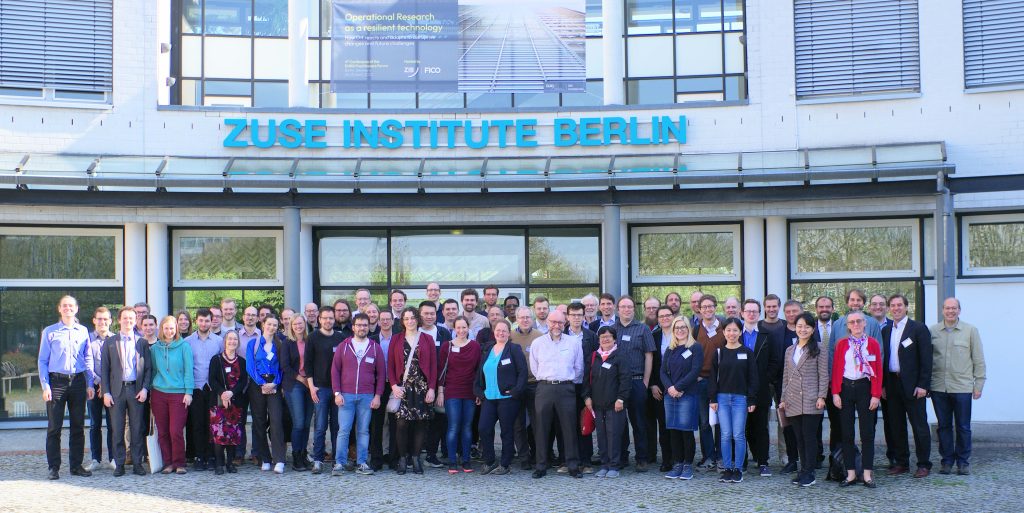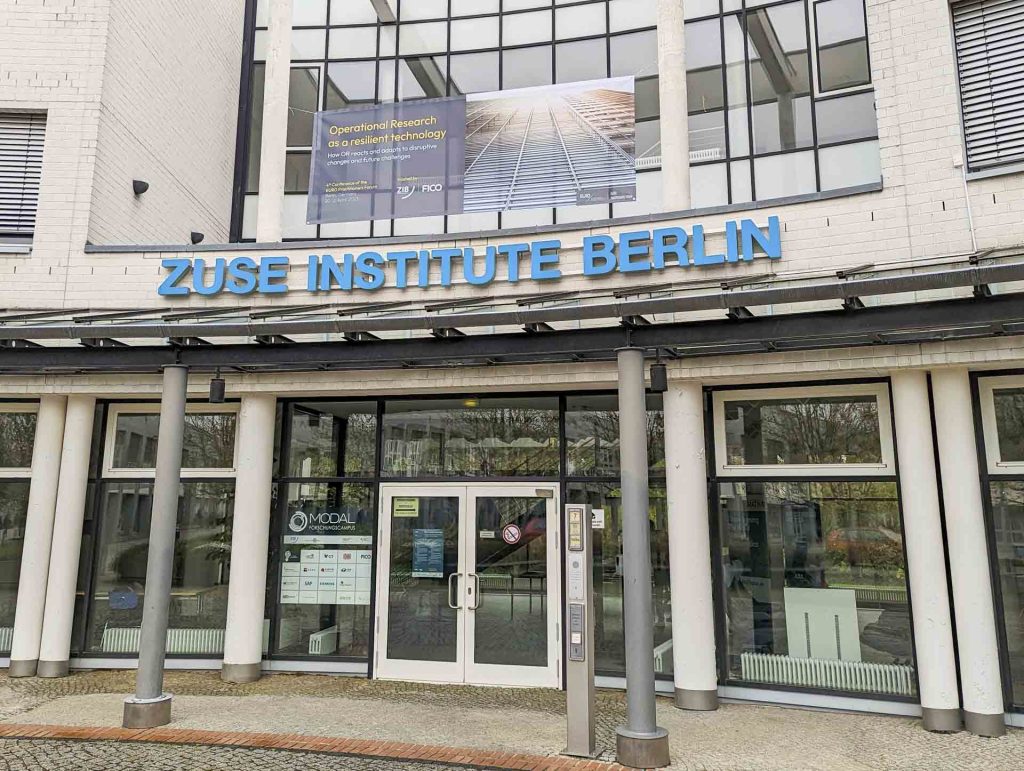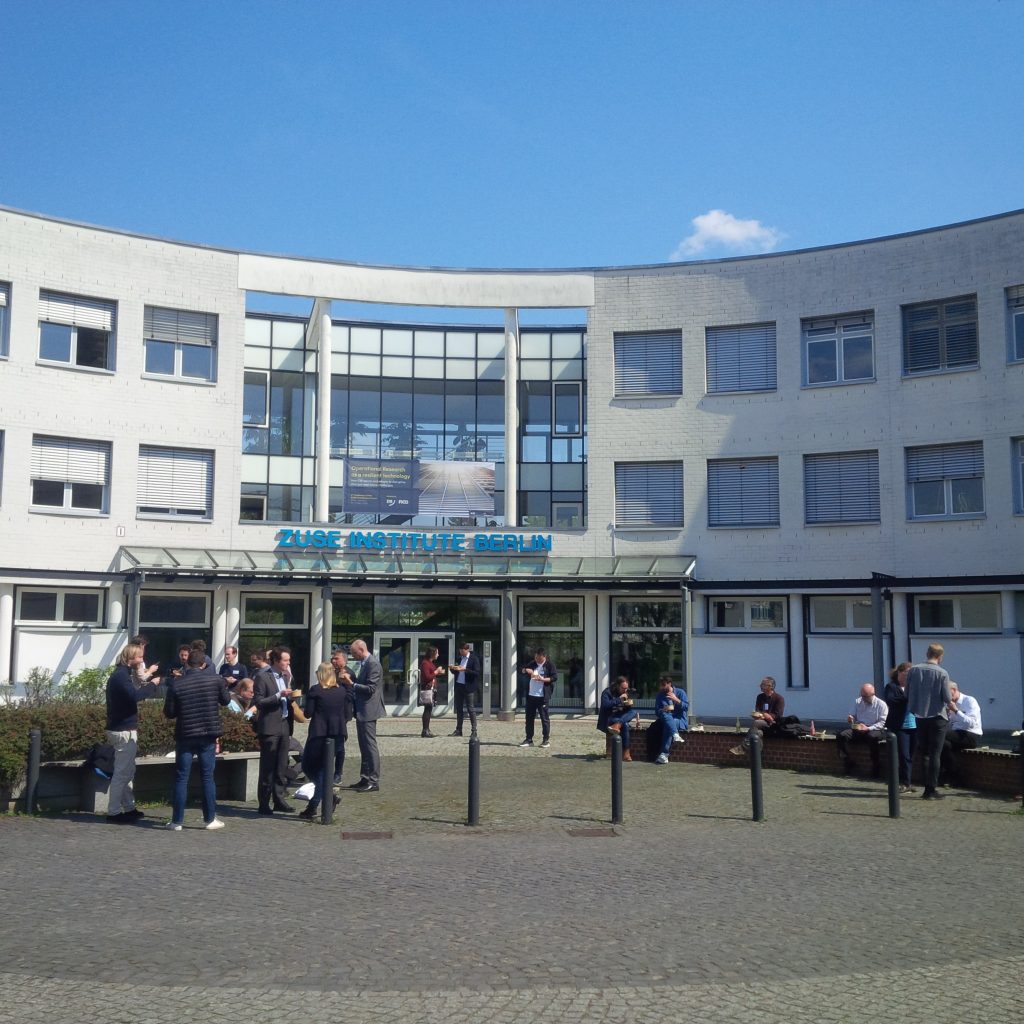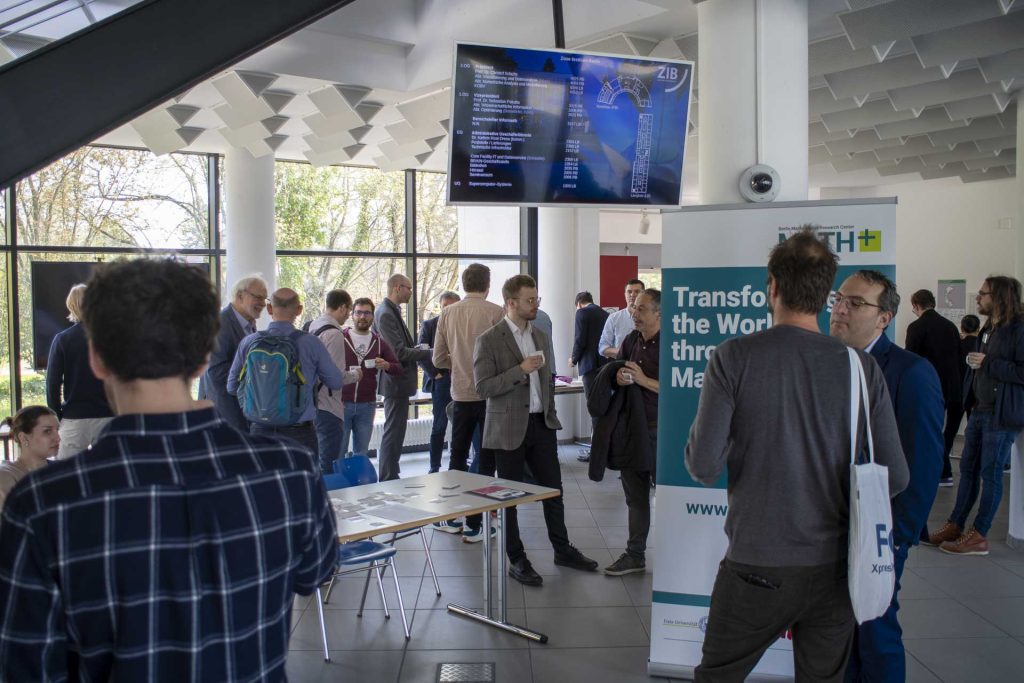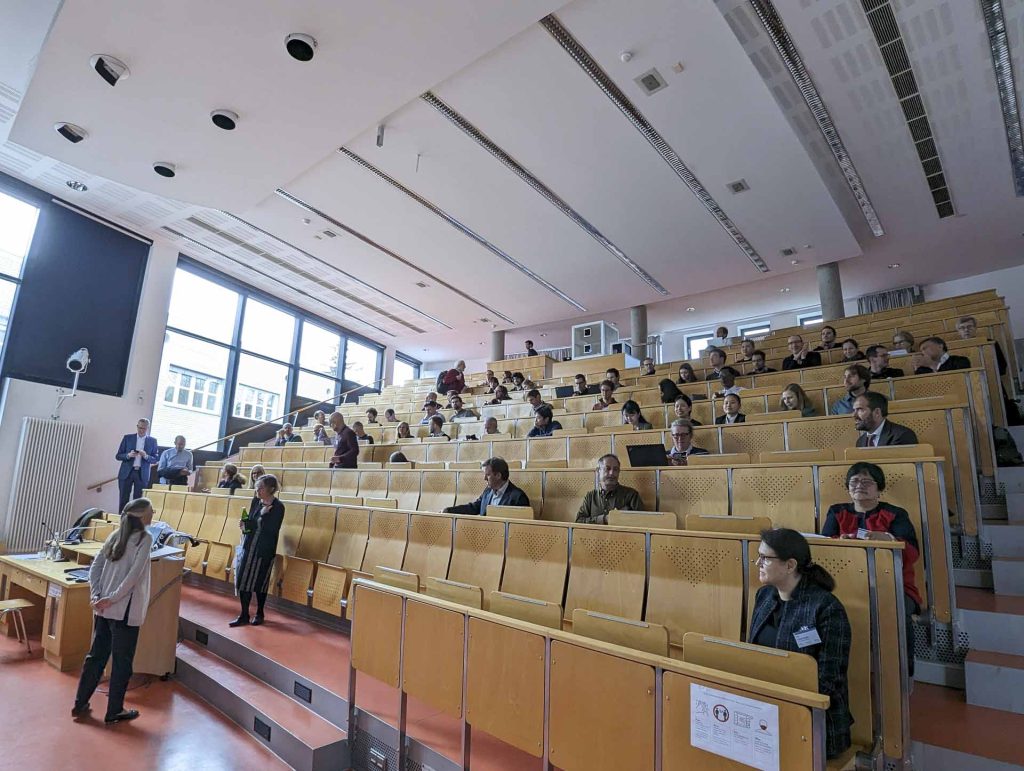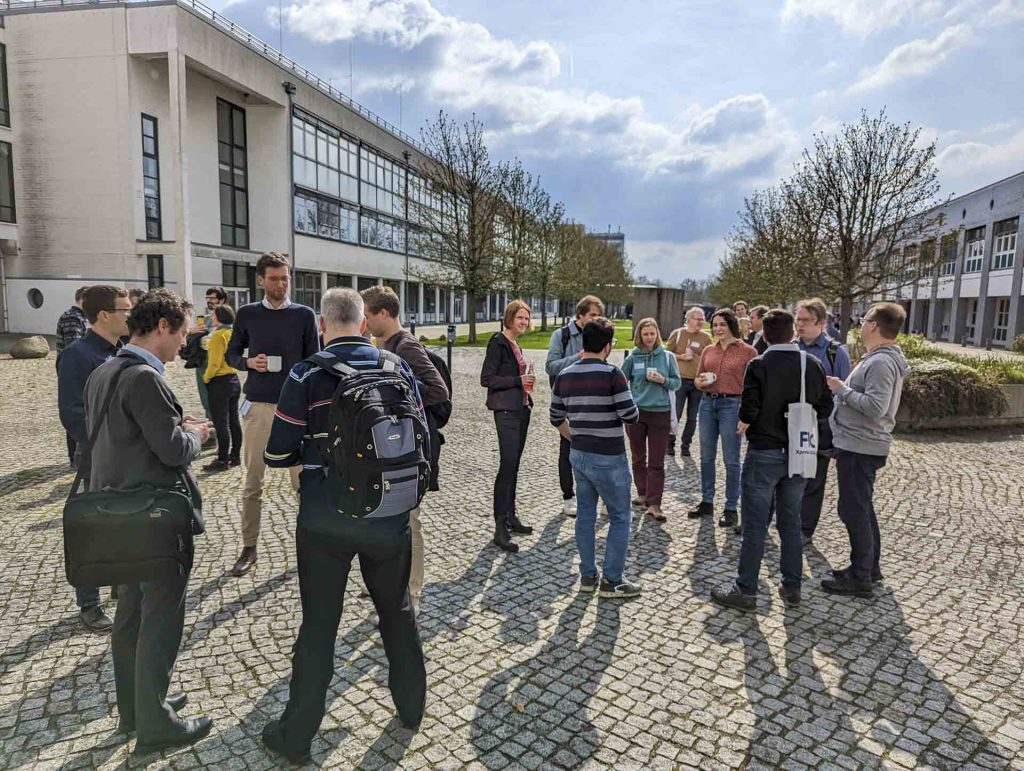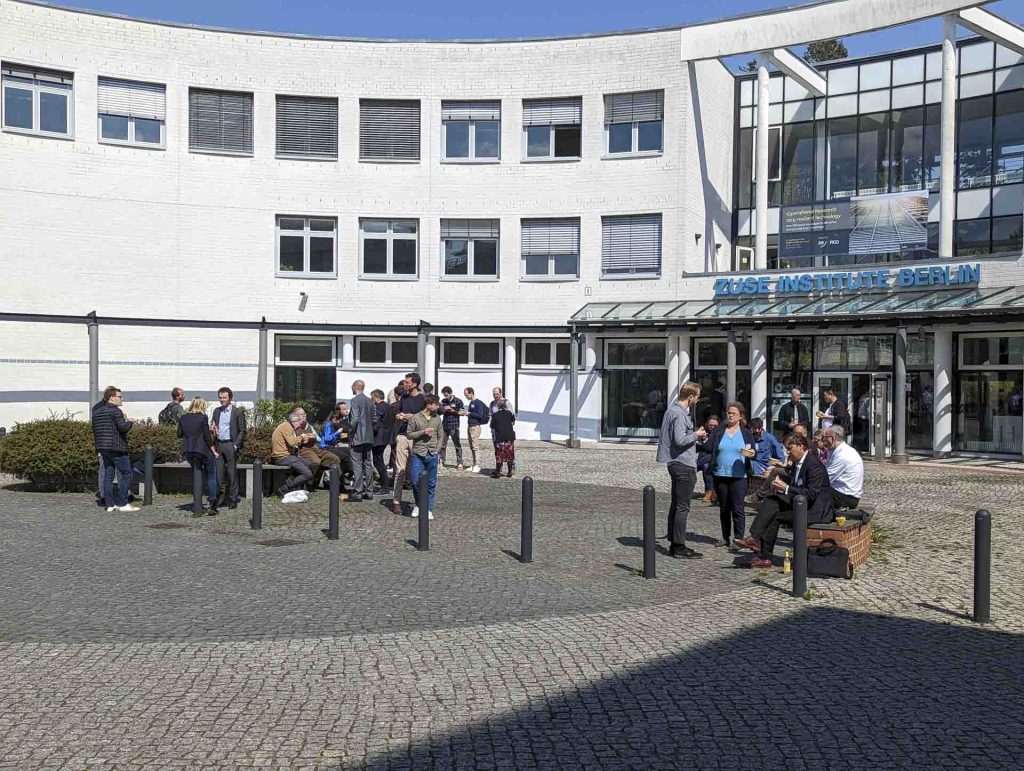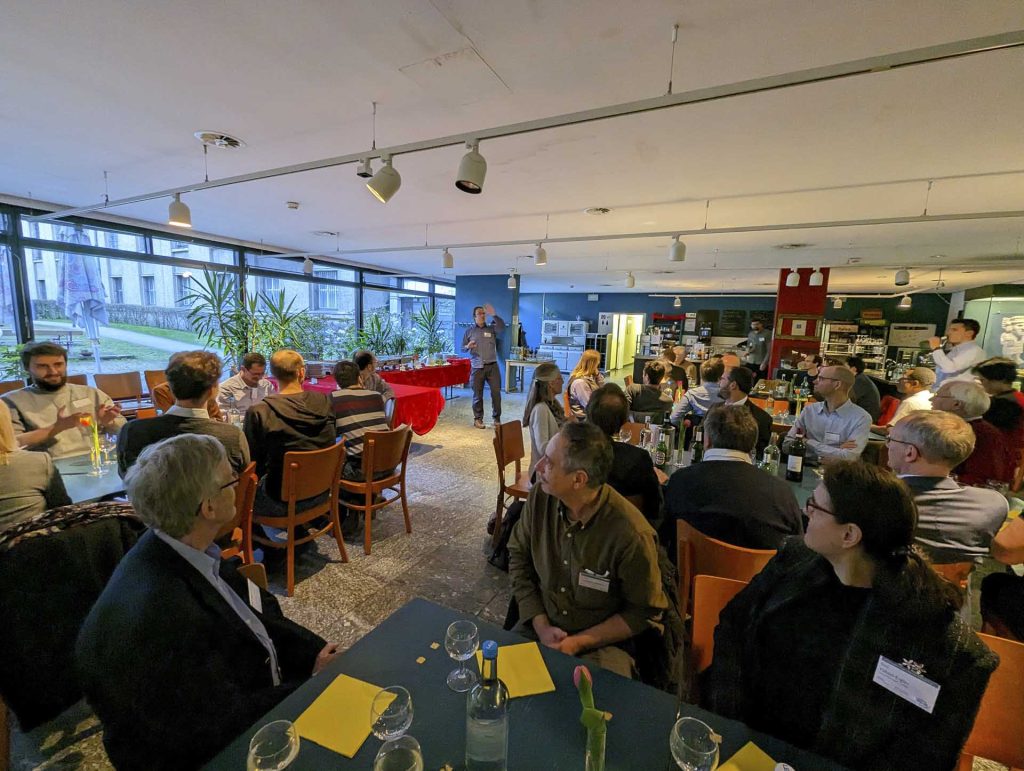OR as a resilient technology: How OR reacts and adapts to disruptive changes and future challenges
20 April, 2023 (1:30pm) – 21 April, 2023 (4pm), Zuse Institute Berlin
Conference programme
During this event we want to explore the use of OR techniques in unpredictable situations that cause disruptive changes to established processes. Crisis situations might be a result of political or economic events, natural disasters or social upheaval. Radical changes can also be induced by technological advances.
Please scroll down to download a PDF of the complete conference programme.
Keynotes
Daniel Roth (Jeppesen, Sweden):
Using airline planning software to schedule nurses when COVID hit Sweden
The Nurse Scheduling problem is a classical optimization problem studied in academia and of course addressed daily across the world. Mostly, this planning problem is solved manually and done very similarly from month to month. But what do you do when the COVID-19 pandemic turns everything on its head with the care units expanding drastically, and work time rules completely change? The Karolinska hospital in Stockholm, Sweden, and Jeppesen, normally working with airlines, teamed up to tackle this very challenge. In just a few days, the team went from initial discussions to publishing completely new schedules for the nurses.
Vladimir Fux (Zalando SE, Germany):
Optimal Pricing under macroeconomic shock and unstable customer behavior in e-commerce
In this talk, we will introduce the algorithmic landscape deployed for pricing at Zalando, the leading European online fashion company. Our main components consist of a forecasting system that models (future) data based on transformer models and an optimization approach based on MIP. We will discuss how our systems navigated the initial shocks of the pandemic and also the Ukraine war. While our system proved to be resilient to the shocks, we needed to invest more work during the transition from the pandemic to the post-pandemic period. For some changes a fast reaction was necessary both on business processes and algorithmic solutions sides, and keeping the right pace with those was the key.
Sandrine Charousset-Brignol (EDF, France):
The European carbon reduction targets are calling for significant changes in our electricity system. These changes, especially the emergence of a high share of intermittent renewable energy sources in the energy system, create new challenges. In particular, the volatile character of generation from renewable energy sources and the dependency on weather conditions increases the need for flexibility. Moreover, climate change will also deeply impact the electricity system, both on generation and consumption sides. In this talk, we will show how we are accounting for these evolutions in European electricity system models and present some recent advances related to solving solutions, as well as forthcoming challenges for the OR community.
Klaus Spreckelsen (OGE, Germany):
How to cope with the recent new challenges in gas transport
During the last year the situation regarding gas supply has fundamentally changed in Germany and all of Europe. The sources of supply have moved significantly for east to west on short notice.
New sources, for example, LNG, which will arrive in northern Germany, has to be transported to the industrial areas in the south. This results in massive changes of flow patterns, which for several reasons are difficult to change. We will report on the challenges that cam up and the solutions implemented.
Antti Korhonen (Detech Decision Technologies, Finland):
Managing uncertainty and preparing for disruptive changes in financial services industry
The presentation discusses optimization solutions for strategic financial decision-making and enterprise-wide risk management in financial institutions. The software is a sophisticated prescriptive analytics solution based on a stochastic dynamic optimization approach and solves highly complex real-world financial planning problems under uncertainty. The application is an integrated platform for banking, insurance, pension funds, wealth management and multinational financial groups.
The software computes dynamic, multi-period financial strategies with concrete action plans that fulfill diverse management goals, priorities and regulatory requirements. The strategies help institutions to prepare simultaneously for multiple economic and financial market scenarios in uncertain operating environments. The computed forward-looking strategies lead to considerable improvements in performance when compared with more traditional approaches. This improvement in performance becomes particularly noticeable in exceptionally difficult and turbulent operating environments.
Contributed talks
The Intelligent Machinery Behind Airline Ground Ops (Claude Philippe Medard and Nidhi Sawhey, SAP)
Temporary logistic hubs prepositioning for preparedness and response disaster operations (Suhad Rebhi Al-Natoor, Eastern Mediterranean University)
Mixed – integer linear programming models to optimize residential demand response to dynamic tariffs (Carlos Henggeler Antunes and Maria João Alves, University of Coimbra)
Multi-energy systems design and operations in response of climate change policies (Matteo Pozzi, OPTIT)
Improving quality of OR data sets: Detecting and removing data errors that involve superhuman complexity (Inci Yüksel-Ergün, Thorsten Koch and Janina Zittel, Zuse Institute Berlin)
Organisation committee:
Timo Berthold (FICO), Susanne Heipcke (FICO), Thorsten Koch (ZIB), Inci Yüksel-Ergün (ZIB), Andrew Harrison (Inawisdom)
Venue information
Zuse Institute Berlin (ZIB), Takustraße 7, 14195 Berlin
Map: https://www.zib.de/contact
Hotels: https://www.zib.de/sites/default/files/page_attachments/Hints_for_visitors_0.pdf
Registration (free)
Sponsors
Many thanks to the sponsors of this event:

The complete conference programme is available for download below
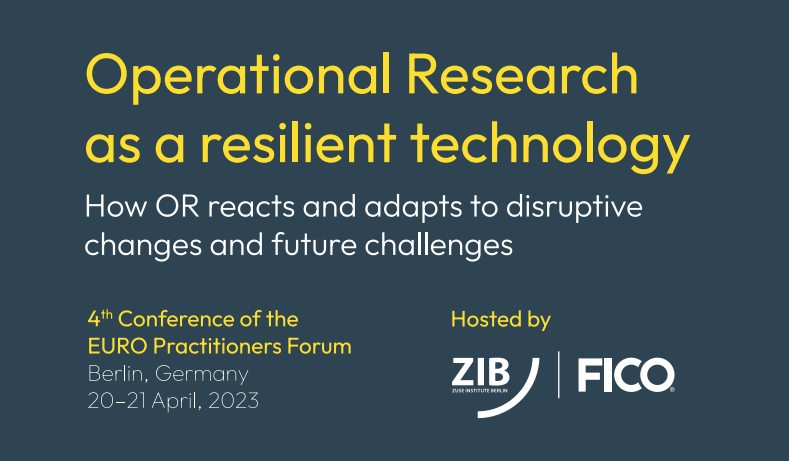
Conference pictures
